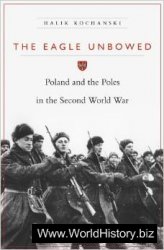Gavrilo Princip was the teenage assassin who murdered Austrian Archduke
Franz Ferdinand, thereby precipitating the diplomatic crisis that led
to the outbreak of World War I. Princip was a Serb living in Bosnia-Herzegovina,
and he was steeped in the national hatreds that dominated life in the
Balkans. The young man and his friends despised the fact of Habsburg rule
over their homeland; they belonged to a group of radical schoolboys who
longed to see Bosnia-Herzegovina united with the kingdom of Serbia.
Enthusiastic but barely competent amateur killers, they were willing to take
up the tools of the assassin to shake the power of Austria-Hungary over its
Serb population. They expected great results of some sort by murdering the
heir to the Austro-Hungarian throne. Princip ignited a diplomatic crisis that
soon plunged most of the continent into hostilities.
The future political murderer was bom on July 13, 1894, in the Krajina
region of northwestern Bosnia. He was the son of a poor peasant who
supported his family by farming and carrying the mail. A small, quiet child
as well as a diligent student, Gavrilo grew up in a rural environment filled
with nationalist propaganda calling for the creation of a Greater Serbia.
Such a prize could come only by uniting the kingdom of Serbia with
Serb-inhabited territories like Bosnia-Herzegovina, under Austrian control,
and Macedonia, under the rule of the Ottoman Empire.
In 1 907 the thirteen-year-old finished his studies at his village school and
moved to Sarajevo, where he continued his education at a local commercial
school. There he had his first contact with one of the secret nationalist
groups that thrived among schoolboys in the Serb communities of Bosnia-
Herzegovina. For Serb nationalists of any age, the annexation of Bosnia-
Herzegovina by Habsburg authorities in 1908 raised their passions to fever
pitch. The move seemed a new and intolerable barrier to the united Serb
state of their dreams.
In 1911 Princip joined a secret student group. He now had the example
of a recent attempt at political assassinadon: in June 1910, a young Serb
had tried unsuccessfully to murder the governor of Sarajevo. Meanwhile,
in May of the same year, more competent Serb nationalists, many of them
military and political figures of consequence in the kingdom of Serbia, had
formed a group known as the Black Hand. It pledged to pursue "with all
means" its goal—"the union of all Serbs."
In 1912 Princip took a crucial step toward his fateful encounter with
Archduke Franz Ferdinand. Expelled from school after participating in a
political demonstration, he crossed the border into the kingdom of Serbia;
there he joined the horde of impoverished young Bosnian exiles who
gathered in cheap cafes and dreamed of heroic actions. Serbia's victorious
war against Turkey in the winter of 1912-1913 offered some of the exiles
the chance for action. Princip, still undersized and apparently sickly, found
himself rejected for service with Serbia's fighdng forces. Embittered and
frustrated, he spent the next months wandering between Sarajevo and
Belgrade, the Serbian capital.
In early 1914, while Princip was still only nineteen, he joined a group of
like-minded young Bosnian exiles. All were fervent Serb patriots; when
Princip, in March, read of the archduke's planned visit to Sarajevo, all
agreed with his call to murder the Austrian leader. At this point, Princip's
group and the Black Hand made firm contact.
Somfc historians believe that the Black Hand decided to murder Franz
Ferdinand; they feared that his plans for reforming the Austro-Hungarian
Empire would cool the discontent of Serbs within the empire. In this view,
Princip and his fellow teenagers were the triggermen for a group of politically
sophisticated Serb leaders. More plausibly, Princip and his crew were the
initiators of the plot, with no clear goal other than to strike at an Austrian
leader who was making himself available as a target. The Black Hand merely
provided weapons—pistols and bombs—for the youngsters, without knowing
what they were up to or expecting much in the way of results. Black Hand
leaders, such as the head of military intelligence in the Serbian army, were
not likely to choose amateurs like Princip—who barely knew how to fire his
pistol—as agents to carry out a carefully structured plot.
Starting in late May, Princip and two companions made their way to
Sarajevo with their hoard of weapons. They brought a number of other
amateur plotters into their circle, and on July 28 they struck. Most of the
crew got cold feet or botched their chance at success. A mistake by the driver
leading the archduke's entourage, however, placed Franz Ferdinand and his
wife only a few feet from Princip. The young Bosnian fired twice—without
aiming. Each shot found its mark, killing the archduke and his wife.
At the subsequent trial, Princip stood out from his fellow conspirators by
refusing to plead guilty to any crime. Too young to receive the death penalty
under Austrian law, all the convicted conspirators were sentenced to long
prison terms. Princip died of tuberculosis in the military prison at Theresienstadt
on April 28, 1918.




 World History
World History









